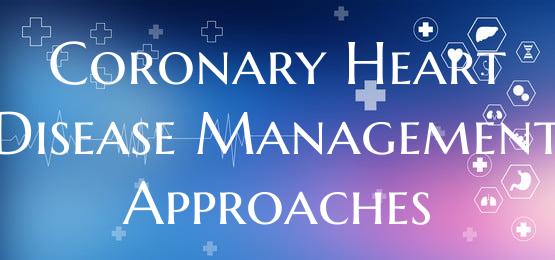
Coronary Heart Disease Management Approaches
Coronary heart disease (CHD) is a condition in which plaque builds up inside the coronary arteries, leading to reduced blood flow to the heart muscle. Proper management of CHD is essential to prevent complications such as heart attack and heart failure. Various approaches can be taken to manage CHD effectively.
1. Lifestyle Modifications: One of the key components of managing CHD is adopting a healthy lifestyle. This includes: - Eating a heart-healthy diet rich in fruits, vegetables, whole grains, and lean proteins. - Engaging in regular physical activity to maintain a healthy weight and improve cardiovascular health. - Quitting smoking and avoiding exposure to secondhand smoke. - Managing stress through techniques such as mindfulness, yoga, or meditation.
2. Medications: Various medications may be prescribed to manage CHD, including: - Statins to lower cholesterol levels and reduce the risk of plaque buildup. - Aspirin or other antiplatelet medications to prevent blood clots. - Beta-blockers to lower blood pressure and reduce the workload on the heart. - ACE inhibitors or ARBs to manage high blood pressure and improve heart function.
3. Medical Procedures: In some cases, medical procedures may be necessary to manage CHD, including: - Angioplasty and stenting to open blocked arteries and improve blood flow to the heart. - Coronary artery bypass grafting (CABG) surgery to bypass blocked or narrowed arteries and improve blood flow. - Implantable devices such as pacemakers or implantable cardioverter-defibrillators (ICDs) to help regulate heart rhythm and prevent sudden cardiac death.
4. Cardiac Rehabilitation: Cardiac rehabilitation programs can help individuals with CHD recover and improve their overall cardiovascular health. These programs typically involve supervised exercise, education on heart-healthy habits, and emotional support to help patients cope with the challenges of living with CHD.
5. Regular Monitoring: Monitoring and regular follow-up with healthcare providers are crucial components of managing CHD. This may involve routine check-ups, blood tests to monitor cholesterol levels, and other tests such as electrocardiograms (ECGs) or stress tests to assess heart function and the effectiveness of treatment.
In conclusion, effectively managing coronary heart disease requires a comprehensive approach that includes lifestyle modifications, medications, medical procedures, cardiac rehabilitation, and regular monitoring. By following a personalized management plan developed in collaboration with healthcare providers, individuals with CHD can minimize symptoms, reduce the risk of complications, and improve their overall quality of life.